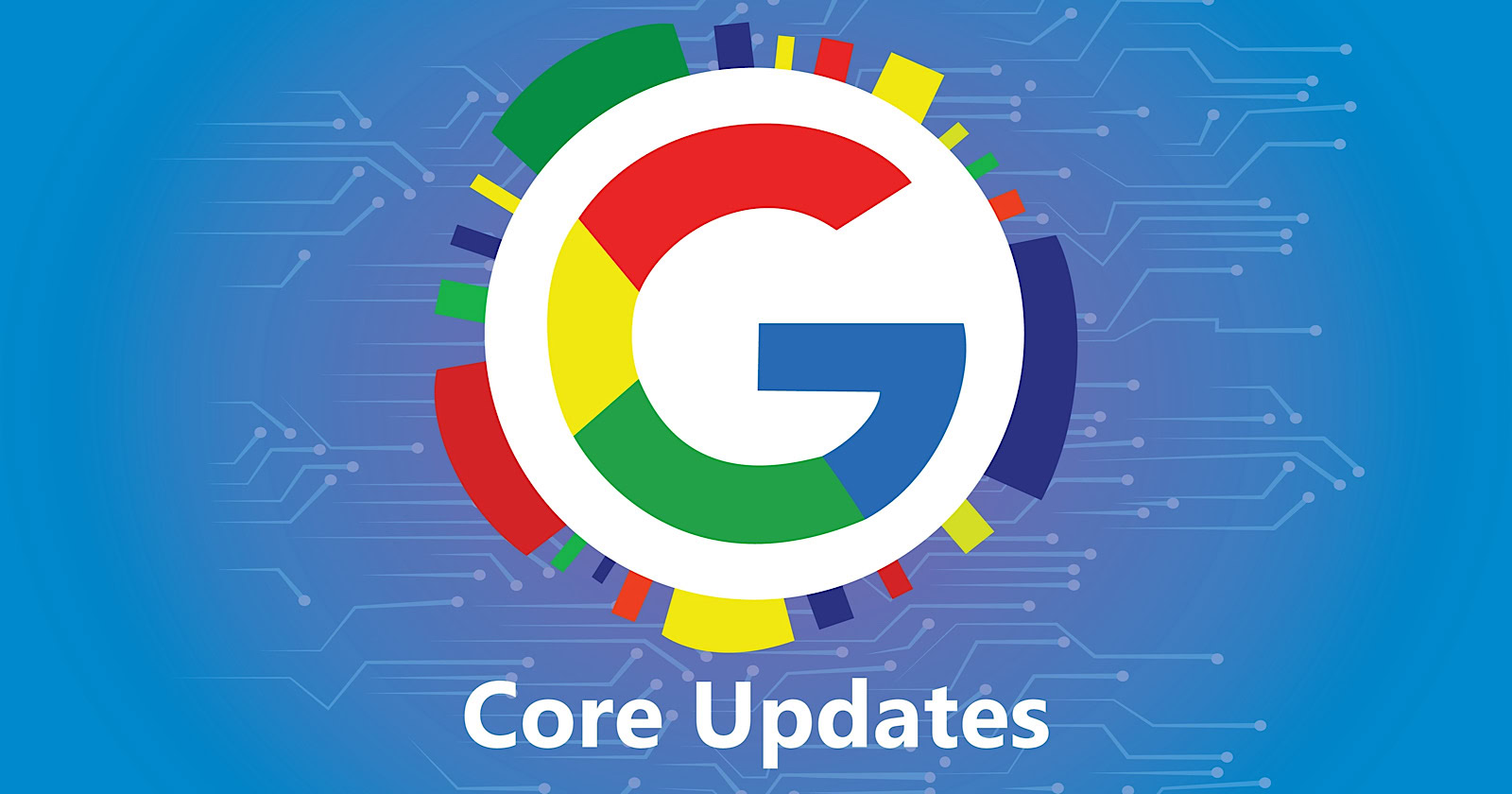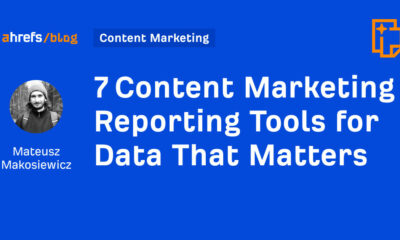SEO
Google Discusses Value Of Non-Recommended Structured Data

Google published a Search Off Record episode about structured data. An interesting topic they touched on was how Google might use structured data that goes beyond what Google’s developer pages recommend. Martin Splitt said that more data can be better.
But there are caveats to adding more structured data beyond what Google recommends.
Schema.org and Google’s Structured Data Recommendations
The relevant part of the podcast began when Lizzi Sassman, a tech writer on the Search Relations group, observed that the structured data documentation at Schema.org was larger than the documentation that is found on Google’s developer help pages.
Google’s structured data recommendations only use a fraction of all the available structured data that is documented at Schema.org.
The structured data ecosystem is larger than just Google and there are many uses of structured data that go beyond what Google recommends and according to what Google shared in this podcast, Google can use some of that extra non-recommended structured data that’s off the books in terms of what Google recommends.
The founding companies behind Schema.org are:
- Microsoft
- Yahoo
- Yandex
However there are major contributors from Drupal and many others in the greater web community.
So Schema.org and the structured data vocabulary that they develop is far greater than the essentially small amount of structured data that Google recommends.
Ryan Levering, a Google software engineer concurred on how Schema.org contains a far more expansive available vocabulary than what Google uses.
Levering observed:
“So it’s just a way of expressing information.
…So it’s very expansive, and it has to account for all of the different use cases that could be used for it.”
Lizzi Sassman, the Search Relations tech writer noted how limitless Schema.org could be:
“And the application of those things could be limitless or like other people can then use this to then say, “We need this type of information to do this thing.” Or that’s the Google aspect, it’s that it’s adding the “This is what we can do with it if we know this information.”
Google’s Use of Structured Data
They next noted how the recommendations found on Google’s developer pages are limited in scope but that Google might actually use structured data that goes beyond their recommendations.
It’s important to note that the purpose for Google’s structured data recommendations is more or less to help publishers obtain rich results by making it easy for Google to identify which images to show in rich results and which data to use in that context.
What the Googler’s next talked about was about using structured data to help Google know what a page is about.
This use goes beyond what Google recommends for the purpose of showing rich results and it’s something that John Mueller has mentioned in the past.
But this additional use of structured data is not something that is officially documented.
So it’s kind of like, if you know about it then you can take advantage of it.
Martin Splitt , a Developer Advocate at Google asked:
“…But is structured data useful beyond what we use for, say, certain search features such as rich results?”
Levering responded that Google could potentially use non-recommended structured data.
Ryan Levering:
“We can potentially use that for some things at Google.
…I never advise people to not put structured data on their web page if it makes semantic sense.
…We also have some things that we do to generally understand the topic of the page. And sometimes the data you put on that can go into that.
Now that’s a very ML sort of process, where we look at all of the text on the page and we look at other things that have to do with the page.
So structured data is just one signal in that overall calculation.
But it can help us with certain disambiguations in terms of what the actual page is about. So it is useful but just in a more implicit sense right now.”
Non-Recommended Structured Data Can Be An Extra Signal
Lizzi Sassman said that the additional structured data could help Google better understand what a web page is about.
Ryan Levering observed that they could probably figure out what a web page was about without structured data.
But that in some cases it might be harder to know what a page is about and that’s where additional structured data might be helpful.
Levering observed:
“So it’s hard to convey that in some of our reporting and stuff that we actually find this useful. Because it’s a nuanced calculation.
But when there is problems detecting it, we can use it as an extra signal.
So it’s usually on the edge cases where we find that stuff useful.”
Martin Splitt commented on how good it was to add more data if it helps to clarify what a page is about.
Splitt commented:
“That’s really, really cool, and I think it’s generally easy to say like more data, as long as it is correct and reflects what’s shown to the user on the page, is never worse, right.
It’s always better to add more data to clarify what the content on the page is.”
Implementing “Undocumented” Structured Data
A caveat inherent in what Martin Splitt said is that everything that’s in structured data must also be in the visible portion of the web page. Google considers it spam when the content in the structured data does not match the content that’s in the visible part of the web page.
Citation
Listen to the Google podcast on YouTube at the 11:56 minute mark:
SEO
Google March 2024 Core Update Officially Completed A Week Ago

Google has officially completed its March 2024 Core Update, ending over a month of ranking volatility across the web.
However, Google didn’t confirm the rollout’s conclusion on its data anomaly page until April 26—a whole week after the update was completed on April 19.
Many in the SEO community had been speculating for days about whether the turbulent update had wrapped up.
The delayed transparency exemplifies Google’s communication issues with publishers and the need for clarity during core updates
Google March 2024 Core Update Timeline & Status
First announced on March 5, the core algorithm update is complete as of April 19. It took 45 days to complete.
Unlike more routine core refreshes, Google warned this one was more complex.
Google’s documentation reads:
“As this is a complex update, the rollout may take up to a month. It’s likely there will be more fluctuations in rankings than with a regular core update, as different systems get fully updated and reinforce each other.”
The aftershocks were tangible, with some websites reporting losses of over 60% of their organic search traffic, according to data from industry observers.
The ripple effects also led to the deindexing of hundreds of sites that were allegedly violating Google’s guidelines.
Addressing Manipulation Attempts
In its official guidance, Google highlighted the criteria it looks for when targeting link spam and manipulation attempts:
- Creating “low-value content” purely to garner manipulative links and inflate rankings.
- Links intended to boost sites’ rankings artificially, including manipulative outgoing links.
- The “repurposing” of expired domains with radically different content to game search visibility.
The updated guidelines warn:
“Any links that are intended to manipulate rankings in Google Search results may be considered link spam. This includes any behavior that manipulates links to your site or outgoing links from your site.”
John Mueller, a Search Advocate at Google, responded to the turbulence by advising publishers not to make rash changes while the core update was ongoing.
However, he suggested sites could proactively fix issues like unnatural paid links.
“If you have noticed things that are worth improving on your site, I’d go ahead and get things done. The idea is not to make changes just for search engines, right? Your users will be happy if you can make things better even if search engines haven’t updated their view of your site yet.”
Emphasizing Quality Over Links
The core update made notable changes to how Google ranks websites.
Most significantly, Google reduced the importance of links in determining a website’s ranking.
In contrast to the description of links as “an important factor in determining relevancy,” Google’s updated spam policies stripped away the “important” designation, simply calling links “a factor.”
This change aligns with Google’s Gary Illyes’ statements that links aren’t among the top three most influential ranking signals.
Instead, Google is giving more weight to quality, credibility, and substantive content.
Consequently, long-running campaigns favoring low-quality link acquisition and keyword optimizations have been demoted.
With the update complete, SEOs and publishers are left to audit their strategies and websites to ensure alignment with Google’s new perspective on ranking.
Core Update Feedback
Google has opened a ranking feedback form related to this core update.
You can use this form until May 31 to provide feedback to Google’s Search team about any issues noticed after the core update.
While the feedback provided won’t be used to make changes for specific queries or websites, Google says it may help inform general improvements to its search ranking systems for future updates.
Google also updated its help documentation on “Debugging drops in Google Search traffic” to help people understand ranking changes after a core update.
Featured Image: Rohit-Tripathi/Shutterstock
FAQ
After the update, what steps should websites take to align with Google’s new ranking criteria?
After Google’s March 2024 Core Update, websites should:
- Improve the quality, trustworthiness, and depth of their website content.
- Stop heavily focusing on getting as many links as possible and prioritize relevant, high-quality links instead.
- Fix any shady or spam-like SEO tactics on their sites.
- Carefully review their SEO strategies to ensure they follow Google’s new guidelines.
SEO
Google Declares It The “Gemini Era” As Revenue Grows 15%

Alphabet Inc., Google’s parent company, announced its first quarter 2024 financial results today.
While Google reported double-digit growth in key revenue areas, the focus was on its AI developments, dubbed the “Gemini era” by CEO Sundar Pichai.
The Numbers: 15% Revenue Growth, Operating Margins Expand
Alphabet reported Q1 revenues of $80.5 billion, a 15% increase year-over-year, exceeding Wall Street’s projections.
Net income was $23.7 billion, with diluted earnings per share of $1.89. Operating margins expanded to 32%, up from 25% in the prior year.
Ruth Porat, Alphabet’s President and CFO, stated:
“Our strong financial results reflect revenue strength across the company and ongoing efforts to durably reengineer our cost base.”
Google’s core advertising units, such as Search and YouTube, drove growth. Google advertising revenues hit $61.7 billion for the quarter.
The Cloud division also maintained momentum, with revenues of $9.6 billion, up 28% year-over-year.
Pichai highlighted that YouTube and Cloud are expected to exit 2024 at a combined $100 billion annual revenue run rate.
Generative AI Integration in Search
Google experimented with AI-powered features in Search Labs before recently introducing AI overviews into the main search results page.
Regarding the gradual rollout, Pichai states:
“We are being measured in how we do this, focusing on areas where gen AI can improve the Search experience, while also prioritizing traffic to websites and merchants.”
Pichai reports that Google’s generative AI features have answered over a billion queries already:
“We’ve already served billions of queries with our generative AI features. It’s enabling people to access new information, to ask questions in new ways, and to ask more complex questions.”
Google reports increased Search usage and user satisfaction among those interacting with the new AI overview results.
The company also highlighted its “Circle to Search” feature on Android, which allows users to circle objects on their screen or in videos to get instant AI-powered answers via Google Lens.
Reorganizing For The “Gemini Era”
As part of the AI roadmap, Alphabet is consolidating all teams building AI models under the Google DeepMind umbrella.
Pichai revealed that, through hardware and software improvements, the company has reduced machine costs associated with its generative AI search results by 80% over the past year.
He states:
“Our data centers are some of the most high-performing, secure, reliable and efficient in the world. We’ve developed new AI models and algorithms that are more than one hundred times more efficient than they were 18 months ago.
How Will Google Make Money With AI?
Alphabet sees opportunities to monetize AI through its advertising products, Cloud offerings, and subscription services.
Google is integrating Gemini into ad products like Performance Max. The company’s Cloud division is bringing “the best of Google AI” to enterprise customers worldwide.
Google One, the company’s subscription service, surpassed 100 million paid subscribers in Q1 and introduced a new premium plan featuring advanced generative AI capabilities powered by Gemini models.
Future Outlook
Pichai outlined six key advantages positioning Alphabet to lead the “next wave of AI innovation”:
- Research leadership in AI breakthroughs like the multimodal Gemini model
- Robust AI infrastructure and custom TPU chips
- Integrating generative AI into Search to enhance the user experience
- A global product footprint reaching billions
- Streamlined teams and improved execution velocity
- Multiple revenue streams to monetize AI through advertising and cloud
With upcoming events like Google I/O and Google Marketing Live, the company is expected to share further updates on its AI initiatives and product roadmap.
Featured Image: Sergei Elagin/Shutterstock
SEO
brightonSEO Live Blog

Hello everyone. It’s April again, so I’m back in Brighton for another two days of Being the introvert I am, my idea of fun isn’t hanging around our booth all day explaining we’ve run out of t-shirts (seriously, you need to be fast if you want swag!). So I decided to do something useful and live-blog the event instead.
Follow below for talk takeaways and (very) mildly humorous commentary. sun, sea, and SEO!
-
SEARCHENGINES7 days ago
Daily Search Forum Recap: April 19, 2024
-

 WORDPRESS6 days ago
WORDPRESS6 days ago13 Best HubSpot Alternatives for 2024 (Free + Paid)
-

 MARKETING6 days ago
MARKETING6 days agoBattling for Attention in the 2024 Election Year Media Frenzy
-

 WORDPRESS7 days ago
WORDPRESS7 days ago7 Best WooCommerce Points and Rewards Plugins (Free & Paid)
-

 MARKETING6 days ago
MARKETING6 days agoAdvertising in local markets: A playbook for success
-

 SEO7 days ago
SEO7 days agoGoogle Answers Whether Having Two Sites Affects Rankings
-

 SEARCHENGINES6 days ago
SEARCHENGINES6 days agoGoogle Core Update Flux, AdSense Ad Intent, California Link Tax & More
-

 AFFILIATE MARKETING6 days ago
AFFILIATE MARKETING6 days agoGrab Microsoft Project Professional 2021 for $20 During This Flash Sale
















You must be logged in to post a comment Login